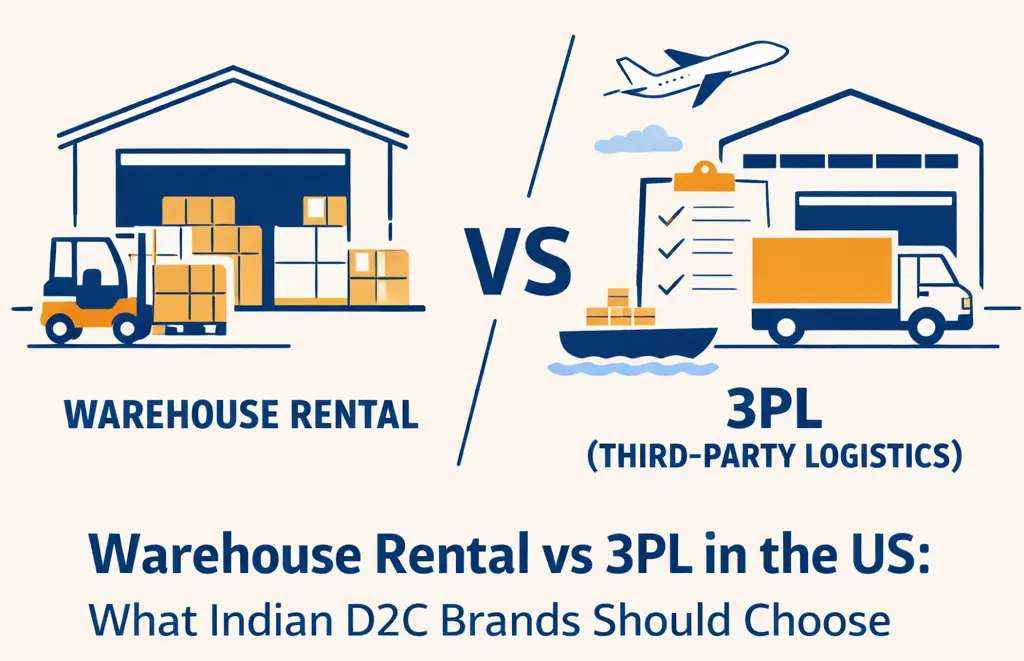Turning your business into a global sensation is not a dream anymore. But to be real it’s not all sunshine and rainbows either. When you’re dealing with a large-scale business, things can get a little… overwhelming.
Ever tried juggling paperwork, logistics, and buyer expectations for a business that is making its way to the international marketplace?
Sounds hectic right?
But don’t worry, we’ve got the ultimate guide to help you keep every box, pallet, and package in perfect order.
In this blog, we’ll break down the nitty-gritty of exporting at scale. That’s right we’re talking large-scale businesses here. From the documentation to building strong supply chains, and creating long-lasting buyer relationships.
Whether you’re levelling up your existing business or just testing the waters, this guide will help you dodge common pitfalls.
Let’s break this down with an example. (No matter what your business is, you’ll find solutions you can relate to through this scenario.)
Now, meet Aryan. He started with a small family business just a humble operation selling local goods. Today? He’s exporting like a boss, with buyers across continents.
How did he do it?
Follow along as we spill Aryan’s secrets. Let’s dive in and turn your export dreams into reality.
So, what are you waiting for? Grab your coffee, roll up your sleeves, and let’s get exporting big.
Start with a Strong Foundation
Every successful export journey begins with setting up a legally compliant business. This isn’t just a formality it’s the base of trust and efficiency in international trade.
- Register Your Business: Choose a structure like a Private Limited Company or LLP to enhance credibility. This signals to buyers and financial institutions that your business is professionally managed and capable of handling large-scale operations.
- Obtain PAN and IEC: A Permanent Account Number (PAN) and Import Export Code (IEC) from the DGFT are essential. These serve as your passport to international markets, enabling customs clearance and access to government incentives.
- Current Account: Open a current account with a bank authorized to handle foreign exchange for seamless financial transactions with international buyers.
Example: Aryan Mehta, founder of Aryan Handicrafts, began by registering his business as a Private Limited Company and obtaining a PAN and IEC. This step reassured international buyers about his company’s professionalism and reliability, paving the way for successful export deals.
Choose Right: Products and Markets
The key to thriving in exports lies in targeting the right product-market combination:
- High-Demand Products: Export products like pharmaceuticals to Africa, textiles to Europe, and organic spices to North America.
- Market Research: Study demand trends, import regulations, and competitor strategies to pinpoint efficient opportunities.
- Cultural Preferences: Tailor your offerings to cultural and seasonal preferences of your target markets.
Example: Aryan identified Europe’s growing demand for eco-friendly furniture through market research. By consulting the Export Promotion Council for Handicrafts (EPCH), he tailored his product line to suit preferences, offering reclaimed wood furniture with natural finishes.
Read more: Best Products to Sell on Amazon in 2025
Master Quality: Assurance and Compliance
Nothing speaks louder than quality in the global market:
- Certifications Matter: Secure ISO, FSSAI, HACCP, or other certifications to meet buyer standards.
- Customs and Labeling: Understand the specific requirements for your product in each country.
- Stay Green: Sustainability certifications like FSC (Forest Stewardship Council) can open doors in eco-conscious markets.
Example: Aryan’s FSC certification for eco-friendly furniture impressed buyers at Germany’s Ambiente trade fair, leading to immediate orders worth ₹50 lakhs.
Build Strong Buyer Relationships
In exports, trust is wealth:
- Attend Trade Fairs: Showcase your products at global expos like Dubai’s Gulfood or Germany’s Ambiente.
- B2B Portals: List your products on platforms like TradeIndia or others to gain visibility.
- Direct Outreach: Create personalized proposals and leverage Social Media to connect with buyers.
Example: By attending Germany trade fair, Aryan built strong relationships with European buyers. His personalized proposals and understanding of buyer needs helped establish long-term partnerships.
Finance Your Export Business Smartly
Large-scale operations require sound financial planning:
- Pre-Shipment Finance: Packing credit loans can help fund raw materials and production costs.
- Post-Shipment Finance: Export bill discounting keeps cash flow steady while awaiting buyer payments.
- Leverage ECGC: The Export Credit Guarantee Corporation insures against payment defaults and political risks, providing peace of mind.
Example: Aryan used pre-shipment financing to scale production and ECGC insurance to protect against buyer defaults. This financial acumen enabled him to take on larger orders without hesitation.
Read more: Pros and Cons of Using Amazon FBA for Your E-commerce Business
Plan for Large Consignments
Shipping large consignments efficiently involves meticulous planning:
- Use Consolidation: Consolidate smaller shipments into full-container loads (FCL) to reduce shipping costs.
- Partner with Freight Forwarders: Work with experienced freight forwarders to manage the complexities of international shipping.
- Track Shipments: Use real-time tracking tools to monitor consignments and provide updates to buyers.
- Regulatory Requirements: Adhere to export–import laws, tariffs, and customs procedures of the destination country.
Example: Aryan worked with a trusted logistics provider to optimize and reduce shipping costs by 25%.
Monitor Holidays and Delivery Schedules
Timing is critical in exports:
- Festivals and Seasons: Align shipments with major holidays like Ramadan, Diwali, Thanksgiving, or Christmas.
- Avoid Delays: Be aware of public holidays in both your country and the destination market to prevent disruptions.
Example: Aryan ensured shipments arrived ahead of key European holidays, earning him repeat orders due to his reliability.
Streamline Logistics and Documentation
Efficient logistics ensure timely deliveries and happy buyers:
- Reliable Shipping Partners: Choose experienced logistics providers.
- Accurate Documentation: Prepare invoices, packing lists, bills of lading, and certificates of origin meticulously.
- Tech Tools: Use export management software to manage documentation and track shipments.
Example: By adopting export management software, Aryan reduced shipping delays by 30%, ensuring timely deliveries.
Utilize Government Schemes and Incentives
Take advantage of the support available:
- Export Promotion Schemes: Use RoDTEP, EPCG, and Advance Authorization to save on taxes and duties.
- EPC Memberships: Export Promotion Councils provide market intelligence, trade fair access, and buyer-seller meets.
- GST Benefits: Exports are zero-rated under GST, and input tax credits can be claimed.
Example: Aryan used RoDTEP benefits and EPCG schemes to upgrade his machinery and reduce operational costs, boosting profit margins.
Read more: How to Export from India for Small Businesses and Medium Enterprises
Conclusion
Exporting on a large scale is a rewarding journey that demands strategic planning and continuous execution. From setting up a compliant business structure to selecting the right markets, ensuring quality, and mastering logistics, every step is crucial. Success lies in building trust, leveraging technology, and utilising government incentives to minimize costs and maximize efficiency.
By adopting the strategies discussed in this guide, businesses can confidently handle consignments that are for large scale businesses, meet buyer expectations, and establish a strong foothold in international markets.
FAQs
Yes, large-scale exporting opens access to global markets with high demand for diverse products. Efficient operations and strategic market targeting can boost profitability.
Use pre-shipment finance for production costs and post-shipment finance for steady cash flow. Leverage ECGC insurance for risk coverage against defaults and political risks.
Secure certifications like ISO, FSSAI, or HACCP and comply with customs regulations and labelling requirements in your target markets.
Plan shipments ahead of time, be aware of public holidays and work with reliable logistics partners to minimize delays.
Schemes like RoDTEP, EPCG, and Advance Authorization reduce taxes and duties. GST benefits also allow exporters to claim input tax credits.
Streamline logistics, optimize container utilization, and use export management software for tracking and documentation. Build relationships with experienced freight forwarders.









